I am often drawn to questions regarding the generations: The Greatest Generation to The Silent Generation to the Baby Boomers to the Gen X to the Millennials to Gen Z.
As a former professor, a former teacher, and as a current parent and grandparent, this subject fascinates me. Now, as a member of the South Dakota Board of Regents, I find that the unique characteristics of each generation shape how and what we teach. For example, are the needs and interests of the Millennials the same as those of the Gen Z? Nope. The university students of the last few years were Millennials, but now our classes are filling up fast with the next group, Gen Z.
Previously (2011, in Critical Pedagogy: Notes from the Real World, pp. 176-177, Fig. 5.1), I shared a chart of my understandings at that moment. This originally came from Jim Burke, and I reproduced with permission. Click here to see the generations and their characteristics and years.
However, time keeps marching forward, and I wanted to update my understandings. I read a bit (see Resources below), and I went to one of my grandsons, Luke, to update my knowledge of the generations.
 Luke Wink-Moran
Luke Wink-Moran
Meet Luke.
As some of you know, Luke contributed to two previous WinkWorlds. Click here and here. In these two posts, we summarized some current writing regarding our post-COVID needs of students and society.
Luke captured his present understanding in the image below. He omitted the World War II generation, which is often referred to as “The Greatest Generation.”
How To Make Sense of This
Think of your own family members–at least that helped me.
Dawn and Bo: I started with our own two kids, as I sure do know their birth dates: 1968 and 1971 They are both Gen X. Very much so.
Next, I thought about our grandkids: Wyatt, Luke, Wynn, Austin, and Garrett. Wyatt and Luke have many Millennials characteristics, and I can see that Wynn and Austin have more characteristics of Gen Z. For now, Garrett is a Gen Z, but it will not surprise me if he eventually falls into a Yet-to-be-Labeled Generation. And, whatever that generation is named, I will bet that Garrett will be leading the parade.
Wink and I are a part of the Silent Generation, although we did not know it when we started down this family path together. We graduated from undergrad (Yankton College) in 1966, and left immediately for life in the Philadelphia area. I started teaching at Great Valley High School, Malvern, PA, and in 1968 Dawn was born. Wink and I looked back at our college friends, only two years younger, and saw that they had totally different life experiences. While we had a mortgage, diapers (pre-Pamper days), and careers—they had the Sexual Revolution, marijuana, and a trip to Woodstock.
We often laugh that we missed the Sexual Revolution by two years. We’ve been catching-up ever since.
1968 was a pivotal year for our nation and for us. In 1969, I realized that I was morphing from a nice Goldwater Girl to a mom who questioned everything. I remember dressing Dawn in little bell bottoms, a little leather fringed vest, and a headband. I jumped on a bus to go to a protest in Washington DC, Dawn in a blue Johnny-Carry on my back. I have no idea now exactly what we protested, but I clearly remember that she was the cutest little “beatnik” there. I remember the personal and national pain of the assassinations of that time: John Kennedy, Bobby Kennedy, Martin Luther King. The Silent Generation suddenly was replaced by the Baby Boomers.
Now our family and yours are all experiencing a similar national and personal pain. It will change us all.
Resources used in this article
Dabney, Courtney. (2020, March 26). It took a global pandemic, but Generation X is finally getting love. PaperCityMag. https://www.papercitymag.com/culture/generation-x-earns-respect-conronavirus-pandemic-stay-home/?fbclid=IwAR0k83T1LVV1BBduh5QWQtpQektT7s1Gc6WDffNT9GfBQNb57yhanBEonHc
Guillén, Mauro F. (2020). 2030: How today’s biggest trends will collide and reshape the future of everything. St. Martin’s Press: New York.
Salingo, Jeffrey J. (2018). The new generation of students: How colleges can recruit, teach, and serve Gen Z. The Chronicle of Higher Education.
Wink, J. (2011, p. 176 & 177). Critical pedagogy: Notes from the real world. Upper Saddle River, New Jersey: Pearson Education, Inc. Used with permission from Jim Burke, jburke@englishcompanion.com.
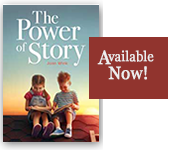
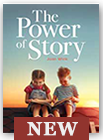
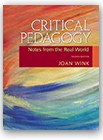
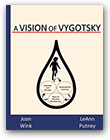

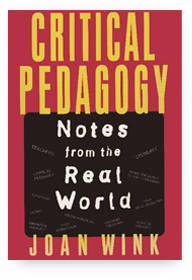



at 11:28 am
Generational differences have always fascinated me, as well. I love how you created this updated and timely post! I wonder if you have come across the term “xennials” in your research. Even now, my autocorrect is not accepting it, but there are articles here and there about it. It is a “Word We are Watching” according to the Merriam-Webster dictionary. Having been born in 1980, I find myself not really identifying with Generation X or the Millennial generation.When I first came across the term, I thought, “Finally! Yes, that describes me!” Xennials are said to be the first group to “an analog childhood but digital adulthood.” It is currently considered a micro-generation, and there is some debate about how it is pronounced (with the x or with the z sound, like in xylophone). As you stated, time marches on, we shall see how all these national events shape each generation, and micro-generation.
at 10:10 pm
“Xennials:” Yes, I have read about this little group. Initially, I think they were called Gen Y, but then that term sort of dropped out of use. I am guessing that the term, xennials, stands the test of time. Find the timeline I did in the 2011 Critical Pedagogy: Notes from the Real World. I talk about Gen Y.
at 3:31 am
My wife and I are Yankton College graduates(72 and 74). Our College years were filled with all sorts of turmoil and change yet we persevered as you did. My choices found me with an Army Career as well as one in Education; both of which I would have never dreamed of in 1968 as a High School Senior in New York. I sincerely believe the Liberal Arts Education we all received at YC decades ago made a difference in how we approach things, listen to differing opinions, and take on challenges willingly.
at 10:05 pm
Thanks Bruce, and as a proud graduate of Liberal Arts myself, I totally agree. Luke and I have been thinking about writing on this very topic: The Humanities: Why? We believe that the future will need readers/writers/thinkers/problem-solvers.